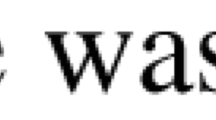Abstract
In her recent defense of predicativism for proper names, Delia Graff Fara proposes the following non-metalinguistic being-called condition (BCC) for the applicability of names as predicates: A name ‘N’ is true of a thing if and only if it is called N. The BCC is supposed to hold for names only. In this essay I criticize Fara’s BCC by arguing that the word ‘called’ is ambiguous, and that the BCC holds only for the particular sense of ‘calling’ as naming. I revise accordingly Fara’s BCC and propose in its place a non-metalinguistic being-named condition (BNC). I also argue, against Fara, that being-named conditions are not unique to proper names: they hold for (at least some) mass nouns, common count nouns, as well as for family names, which I distinguish from surnames. Finally, I discuss honorific titles and propose a being-entitled condition according to which a title ‘T’ (when a predicate) is true of a thing just in case it is dubbed T. I conclude the paper with pragmatic, syntactic, as well as semantic considerations in favor of the thesis that names are a subspecies of non-hereditary, honorific titles.
Similar content being viewed by others
References
Austin, J. (1979). Performative utterances. In J. O. Urmson & G. J. Warnock (Eds.), Philosophical papers (pp. 233–252). Oxford: Oxford University Press.
Bach, K. (2002). Giorgione was so-called because of his name. Philosophical Perspectives, 16, 73–103.
Biro, J. (2012). Calling names. Analysis, 72, 285–293.
Boër, S. (1975). Proper names as predicates. Philosophical Studies, 27, 389–400.
Burge, T. (1973). Reference and proper names. The Journal of Philosophy, 70, 425–439.
Carlson, G. (1977). Reference to kinds in English. Ph.D. dissertation, University of Massachusetts, Amherst, MA.
Chierchia, G. (1998). Reference to kinds across languages. Natural Language Semantics, 6, 339–405.
Fara, D. G. (2011). You can call me ‘stupid’, just don’t call me stupid. Analysis, 71, 492–501.
Fara, D. G. (2015a). ‘Literal’ uses of proper names. In A. Bianchi (Ed.), On reference (pp. 251–279). Oxford: Oxford University Press.
Fara, D. G. (2015b). Names are predicates. Philosophical Review, 124, 59–117.
Georgi, G. (2017). On being called something. Linguistics and Philosophy, 40, 595–619.
Gray, A. (2014). Name-bearing, reference, and circularity. Philosophical Studies, 171, 207–231.
Gray, A. (2017). Names in strange places. Linguistics and Philosophy, 40, 429–472.
Higginbotham, J. (1987). Indefiniteness and predication. In E. Reuland & A. ter Meulen (Eds.), The representation of (in)definiteness (pp. 43–70). Cambridge, MA: MIT Press.
Jeshion, R. (2015a). Names not predicates. In A. Bianchi (Ed.), On reference (pp. 225–250). Oxford: Oxford University Press.
Jeshion, R. (2015b). A rejoinder to Fara’s “‘Literal’ uses of proper names”. In A. Bianchi (Ed.), On reference (pp. 280–294). Oxford: Oxford University Press.
Jeshion, R. (2015c). Referentialism and predicativism about proper names. Erkenntnis, 80, 363–404.
Kripke, S. (1980). Naming and necessity. Cambridge, MA: Harvard University Press.
Leonardi, P. (2016). Name or predicate? In A. Bianchi, V. Morato, & G. Spolaore (Eds.), The importance of being called Ernesto. Reference, truth, and logical form. Essays for Ernesto Napoli (pp. 117–140). Padua: Padova University Press.
Levin, B. (1993). English verb classes and alternations. Chicago: Chicago University Press.
Matushansky, O. (2005). Call me Ishmael. In E. Maier, C. Bary, & J. Huitink (Eds.), Proceedings of Sinn und Bedeutung (Vol. 9, pp. 226–240). Nijmegen: Nijmegen Centre of Semantics.
Matushansky, O. (2008). On the linguistic complexity of proper names. Linguistics and Philosophy, 31, 573–627.
Matushansky, O. (2015). The other Francis Bacon: On non-bare proper names. Erkenntnis, 80, 335–362.
Napoli, E. (2015). Names as predicates. In A. Bianchi (Ed.), On reference (pp. 211–224). Oxford: Oxford University Press.
Predelli, S. (2017). Proper names: A Millian account. Oxford: Oxford University Press.
Sloat, C. (1969). Proper nouns in English. Language, 45, 26–30.
Stowell, T. (1989). Subjects, specifiers, and x-bar theory. In M. Baltin & A. Kroch (Eds.), Alternative conceptions of phrase structure (pp. 232–262). Chicago, IL: University of Chicago Press.
Stowell, T. (1991). Determiners in NP and DP. In K. Leifel & D. Bouchard (Eds.), Views of phrase structure (pp. 37–56). Dordrecht: Kluwer Academic Publishers.
Xhignesse, M. (2018). Entitled art: What makes titles names? Australasian Journal of Philosophy. https://doi.org/10.1080/00048402.2018.1488267.
Acknowledgements
I owe the greatest debt of gratitude to Delia Graff Fara, whose profoundly creative work on names has deeply inspired me. I am also grateful to Paul Hovda, Ori Simchen, and David Liebesman for detailed feedback on previous versions of this paper, and to an anonymous referee of this journal whose comments have been crucial in helping me formulate this final version. I thank the audiences at the UVic colloquium, the UBC-Okanagan Colloquium, the DEX4 Davis Philosophy Conference, the University of Bologna conference in honor of Ernesto Napoli, the Unicamp IV Conference of the Brazilian Society for Analytic Philosophy, and the Pacific APA 2017 meeting, where previous versions of this paper have been presented.
Author information
Authors and Affiliations
Corresponding author
Rights and permissions
About this article
Cite this article
Ballarin, R. The naked ‘duchess’: names are titles. Linguist and Philos 42, 349–379 (2019). https://doi.org/10.1007/s10988-018-9250-2
Published:
Issue Date:
DOI: https://doi.org/10.1007/s10988-018-9250-2




